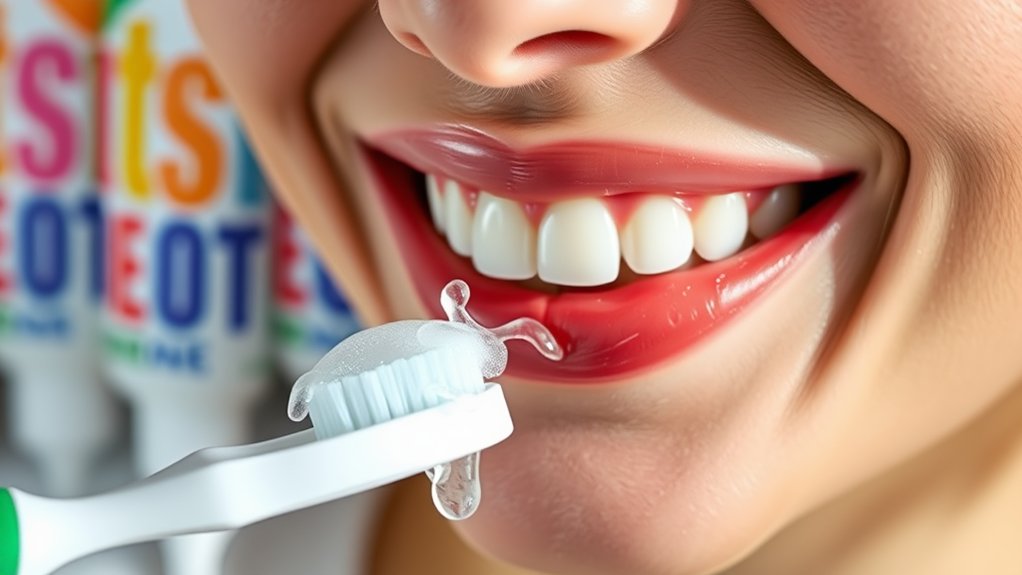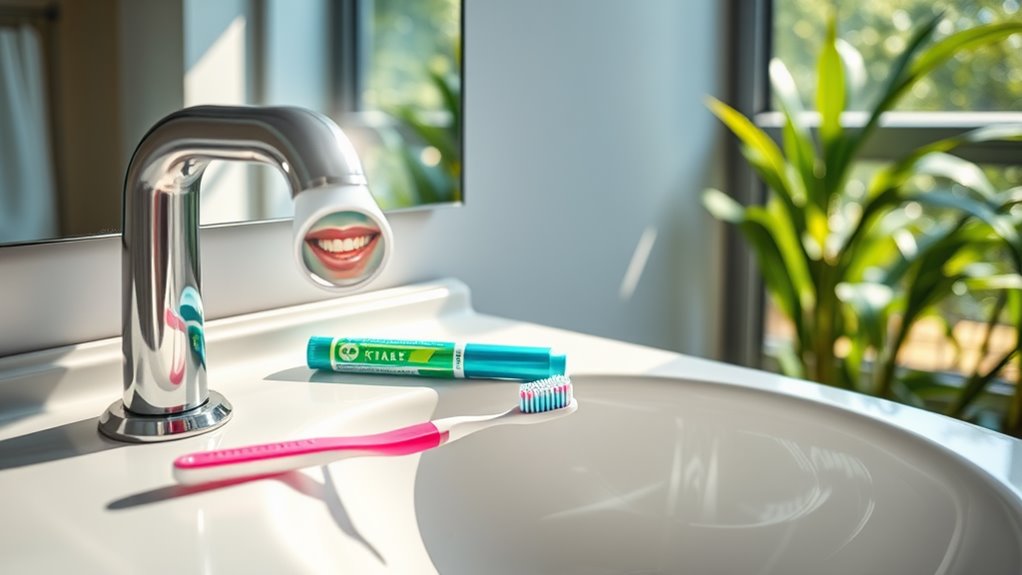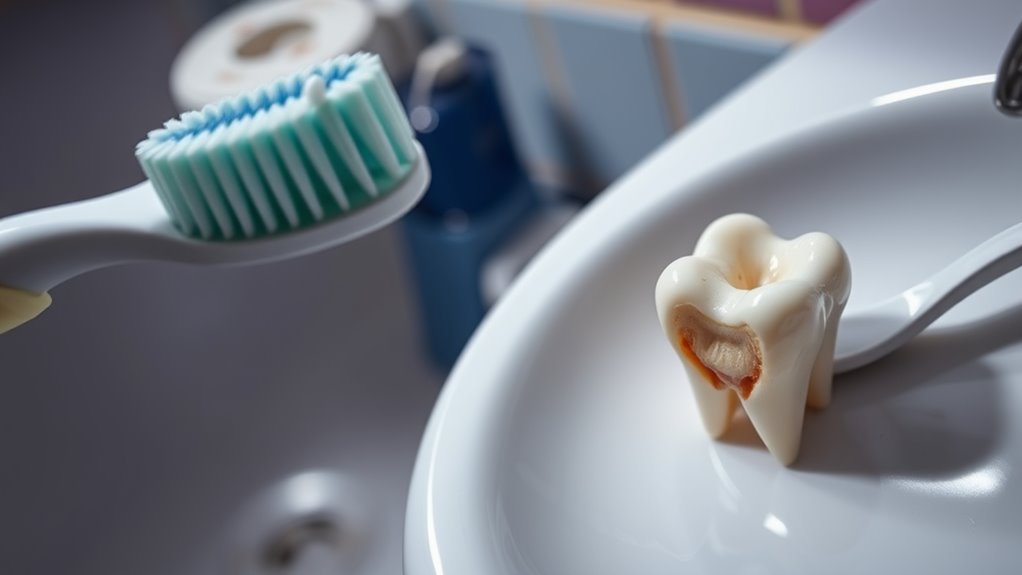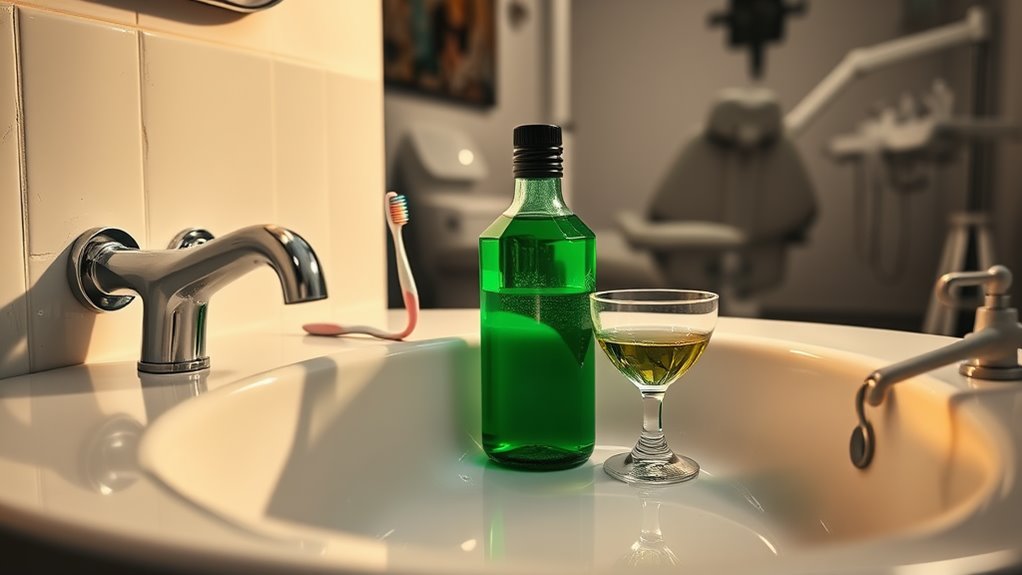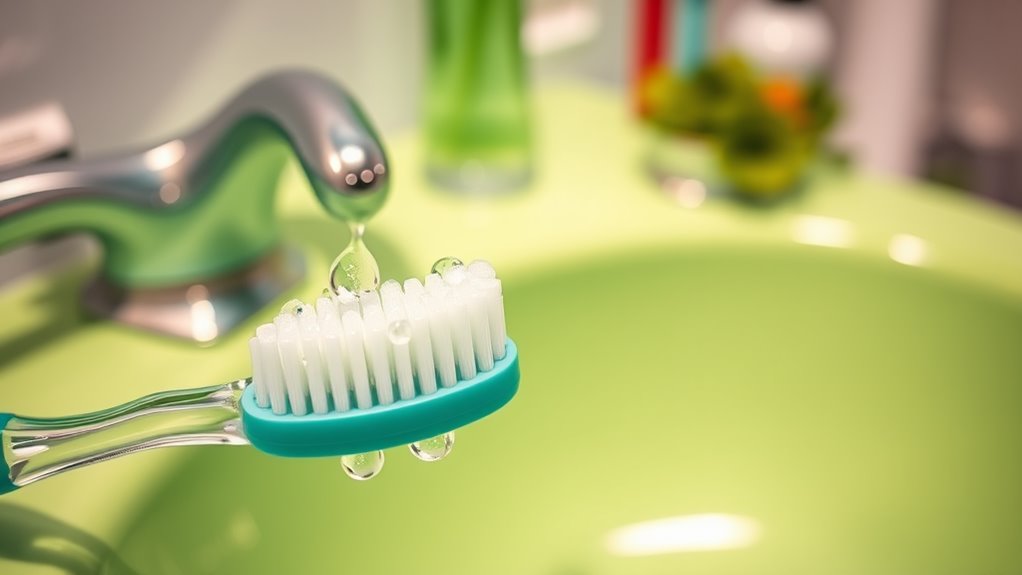Is Your Toothpaste Making Your Teeth Yellow.
You might think your toothpaste is doing wonders for your smile, but it could be hiding a secret. Many popular brands contain ingredients that could lead to unwanted tooth yellowing. If you’ve noticed a change in your pearly whites, it’s worth exploring the impact of whitening agents and abrasives. Understanding the ingredients in your toothpaste may reveal more than you expect about your dental care routine. What’s lurking in your tube?
Understanding Toothpaste Ingredients
When you choose toothpaste, it’s essential to understand its ingredients, as they directly affect your oral health and the appearance of your teeth.
Many whitening toothpastes contain abrasive compounds that can help remove surface stains but may also lead to enamel erosion if used excessively.
Additionally, some whitening ingredients may cause sensitivity in certain individuals. Overuse of products containing hydrogen peroxide can also compromise your enamel and lead to increased sensitivity.
It’s crucial to consider the balance between achieving whitening toothpaste effects and maintaining enamel integrity.
Always read labels and consult your dentist to ensure you’re selecting a product that promotes oral health.
A clear understanding of these ingredients will guide you in making an informed choice.
How Whitening Agents Work
Whitening agents play a vital role in achieving brighter teeth by targeting stains and discoloration. These compounds, such as hydrogen peroxide and carbamide peroxide, penetrate the enamel, breaking down stubborn stains caused by food, drinks, and habits like smoking.
As they oxidize the pigments in your teeth, they effectively lighten the overall shade, restoring a more natural appearance. Besides tackling surface stains, these agents can also address deeper discoloration, giving you a more uniform smile. However, it’s essential to be aware that overuse of whitening agents can lead to enamel thinning and increased sensitivity, affecting your long-term oral health.
When choosing toothpaste, look for formulas that incorporate these whitening agents for the best results and a more confident smile.
The Role of Abrasives in Toothpaste
Abrasives in toothpaste play a crucial role in maintaining oral hygiene and enhancing the appearance of your teeth. These ingredients help remove plaque, stains, and residues that contribute to discoloration.
However, not all abrasives are created equal. Here are some key points to consider:
-
Cleaning Efficiency: They scrub away surface stains effectively.
-
Tooth Enamel: Some abrasives can wear down enamel if too harsh.
-
Sensitivity: Choosing mild abrasives can help reduce tooth sensitivity.
-
Formulation: Always check the toothpaste label for optimal abrasive levels.
Understanding abrasives can help you choose the right toothpaste for a brighter smile. Additionally, be mindful of tooth enamel as it acts as a barrier against acids and bacteria, helping to preserve your teeth’s appearance and health.
Common Causes of Tooth Discoloration
Although many factors contribute to tooth discoloration, understanding these causes can help you take proactive steps in maintaining a bright smile.
Common reasons for yellowing teeth include poor oral hygiene, which leads to plaque buildup; consuming staining foods and drinks like coffee, tea, and red wine; and tobacco use.
Aging naturally reduces enamel thickness, revealing the darker dentin beneath. Additionally, certain medications and excessive fluoride can cause discoloration.
Genetic predisposition plays a role, too, affecting your tooth color from the start. Using baking soda and hydrogen peroxide as a DIY whitening treatment can effectively help manage stains and improve overall tooth brightness.
Being aware of these factors can empower you to prevent and manage tooth discoloration effectively.
Choosing the Right Toothpaste for Your Smile
How do you choose the right toothpaste to enhance your smile? Selecting the appropriate toothpaste is crucial for maintaining white, healthy teeth. Here are four key factors to consider:
-
Whitening Formulas: Look for those containing hydrogen peroxide or baking soda for effective stain removal.
-
Fluoride Content: Ensure it has fluoride to strengthen enamel and prevent decay.
-
Tartar Control: Choose options that help prevent tartar buildup for a cleaner mouth.
-
Sensitivity Relief: If you have sensitive teeth, select toothpaste designed for sensitivity. Additionally, it’s wise to be aware of controversial chemicals that may affect your oral health and long-term safety.
